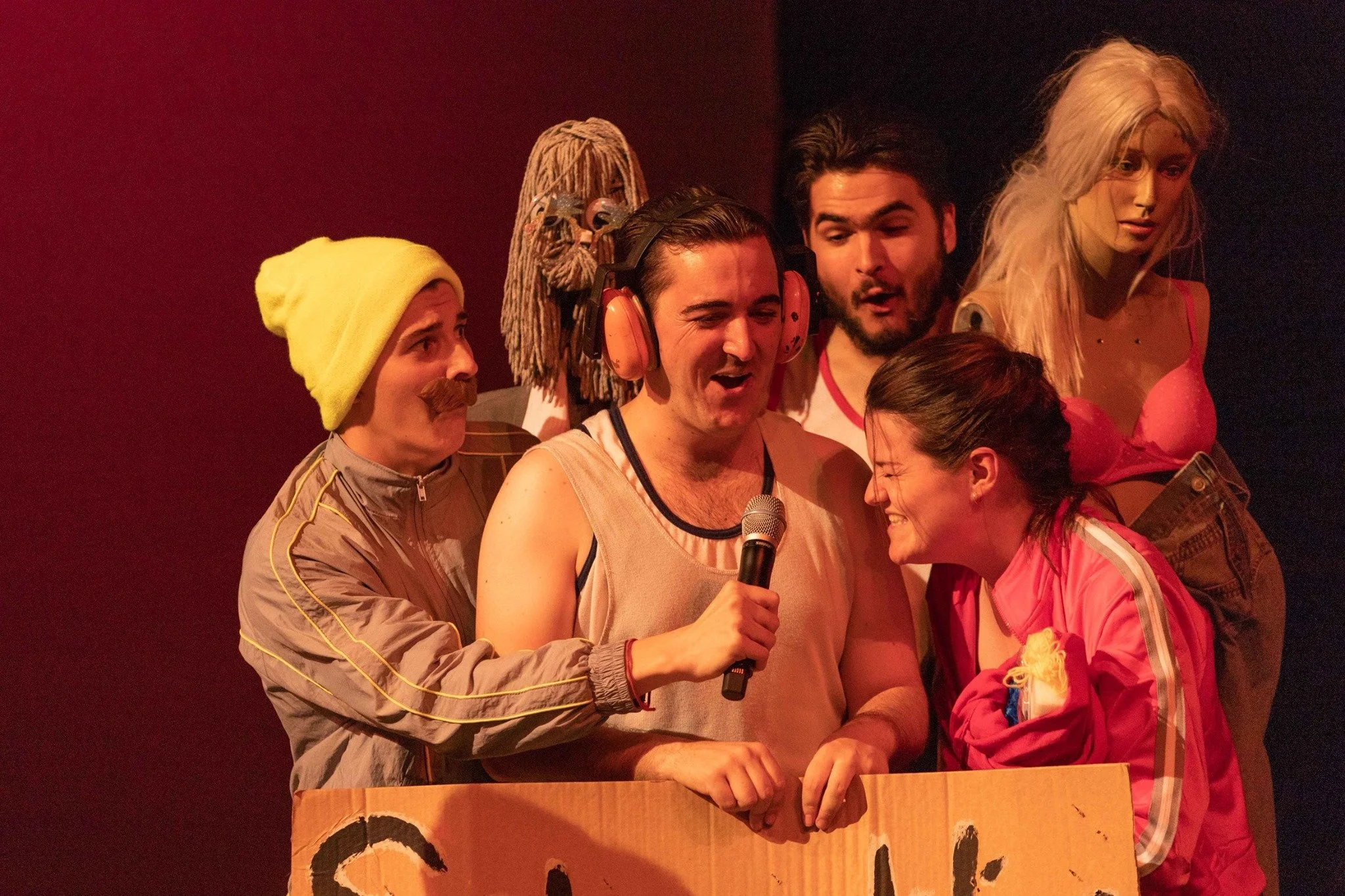BLOG: A quarter life crisis: how I went from bakery to stage
Blake Taylor (centre) in a performance at Flinders Drama Centre
I had been a baker for seven years when I discovered acting.
I was 22, and had already spent 7 years in a bakery - really more than enough time to know it was not for me. I was deeply depressed, and my schedule was crushing. I’d wake up every day at 3am and after years of that, I didn’t have a social life to speak of. Not that there was much to do in Mt. Gambier anyway, which, at the time I was living there, had the dubious distinction of being our State’s ice capital. The choices for my generation seemed horribly limited. We were all desperate to get out.
Then I fell into acting, auditioning one day for Ovation Theatre where Jamie Harding was the artistic director. I juggled three roles in the musical that year, and was hooked. Jamie asked me to come back to teach, and I started doing that three nights a week, and then started doing Jr Musical theatre on Saturday Mornings. I had found something I cared enough about to schedule my life around. A year later, I was absolutely fed up with waking up at 3am. I knew which of my two jobs I wanted to quit.
I wanted to act and so I decided to apply to study at the Flinders Drama Centre. I got in and at the ripe old age of 25 I was the oldest in my class. Still, the course was so challenging that I don’t think 18-year-old me would have survived it anyway. And lots of people did drop out. It wasn’t uncommon that a class of 12 or 14 would be whittled down to six by the final year of the degree, we lost 5 from my year group.
I was one of those who made it through – becoming the first person in my family to get a university degree.
Introducing theatre for social justice
I’ve been a Program Coordinator and Digital Innovator at ActNow Theatre for a few months now, and part of my responsibilities involves booking tours for our award-winning anti-racism programs like Responding to Racism; Generation of Change; Like Me, Like You and جُمعَة Jumu’ah (Friday Prayers). Our teams visit schools in the city, but we’re also committed to heading out more to the regional areas.
I find that not every school is keen on the idea of an anti-racism program – some take the suggestion that they could present one to their students as an accusation. They’ll tell me they don’t have a problem with racism or for instance, if I’m talking about Jumu’ah and islamophobia, they may say there are no Muslims there, so why should the kids need to learn about them?
I explain that they or their students may encounter people different from themselves in the future, in their towns or elsewhere, or that, you know, sometimes it's just nice to not be afraid of strangers and to just get to know different cultures a bit. The kids are there to be educated, aren’t they?
When I was in school, we never saw anything like an ActNow performance on our stage. I sometimes wonder what that might have meant for me and my class if we had. These performances, with their emphasis on forum theatre and social justice issues, are so different from anything we were studying then. We never had a chance to speak to anyone from another culture, or to engage with perspectives outside our little town. I’ve heard the syllabus has improved somewhat, but then education around First Nations history in particular was very, very lacklustre.
From all the feedback I receive now from schools, I know ActNow shows leave students feeling empowered to identify and address racism in their communities. But I think there’s even more to these performances - they demonstrate how theatre can be used for advocacy in a very simple, powerful way. We don’t have much in the way of sets or props, and they pivot around audience engagement. Once introduced to the concept, I suspect kids might be inspired to run with it. They could create forum theatre pieces around climate change, for instance. To me that seems like a particularly valuable tool to give students – a powerful form of protest and a way of actively seeking change without violence.
I know also that if I had seen an ActNow performance as a kid in Millicent, I may have found it easier to imagine a career in the arts.
Out in the regions, it can feel like being an actor or performer or an artist of any kind is outside the realm of possibility because you so seldom meet someone who is. There are either the people who are really famous and are on TV, or there’s the amateur theatre that no one is paid to do. We couldn’t imagine any middle ground…but seeing these amazing young actors from ActNow could have changed that.
Inviting the arts in to the classroom
And really, every classroom should provide pathways into the arts – they’re such an incredibly powerful tool. I've seen a boy go from that ‘troubled kid’ that's always yelling and trying to show off in class to a really considerate, caring, confident child; just one or two theatre classes a week were enough to teach him how to take all that excess energy and channel it in a slightly different way, learn how to focus it and express it through this creative outlet, rather than simply acting out. As a teacher, that’s something I will always remember. It was incredible to watch.
Becoming interested in theatre changed my life too, it changed me. For the first time, I had a sense of my own worth that was outside what I could generate, what outputs I could deliver for a business. I could say: ‘I created this, I wrote this, I said this, this is me’ rather than ‘this is the accounting work that I did’, or ‘these are the pies I made’. Anyone could do the latter with a little bit of training, but what I create as an artist is pure self-expression, unique to me.
I found a lot of the lessons I learned in arts applied to anything else I chose to do. I was capable of coming up with ideas and generating creative solutions. I had the confidence to speak up and put them forward and I've done that in every job I've worked in since then. I'm not just an actor or performer and no matter where I'm working I'm always looking to see, what can I change? What can I make easier? What's not quite working here, and how can I solve that? What can I bring to this that someone else could not?
That's a massive shift from where I was five years ago. It matters because until then I had felt very easily replaceable, I suppose. It’s hard to talk about it without feeling a little bit wanky, but what greater form of self-expression can there be? And once you can express yourself like that, what's holding you back?
Blake Taylor is the Program Coordinator and Digital Innovator for ActNow Theatre.

